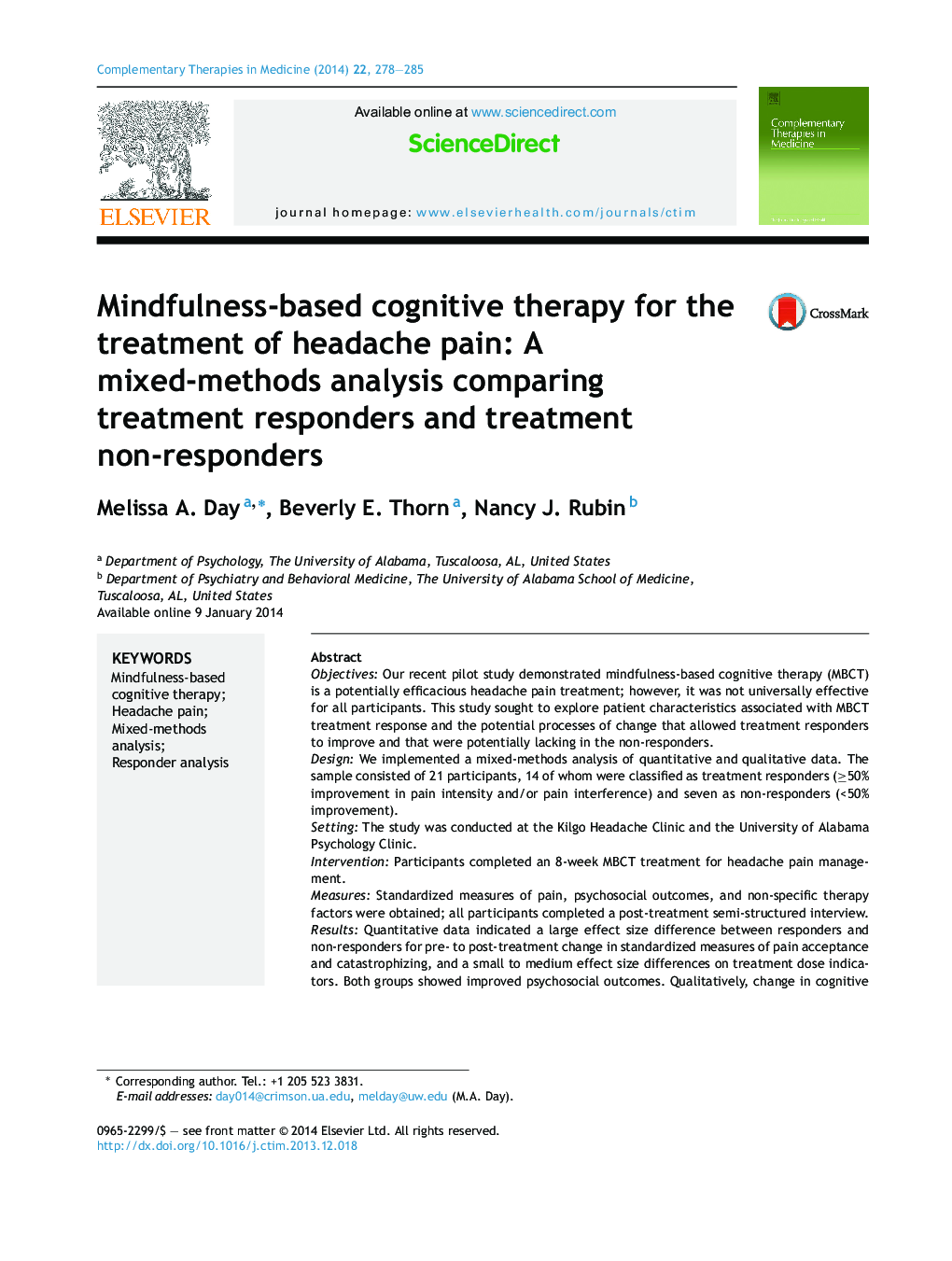| کد مقاله | کد نشریه | سال انتشار | مقاله انگلیسی | نسخه تمام متن |
|---|---|---|---|---|
| 5865584 | 1136520 | 2014 | 8 صفحه PDF | دانلود رایگان |
ObjectivesOur recent pilot study demonstrated mindfulness-based cognitive therapy (MBCT) is a potentially efficacious headache pain treatment; however, it was not universally effective for all participants. This study sought to explore patient characteristics associated with MBCT treatment response and the potential processes of change that allowed treatment responders to improve and that were potentially lacking in the non-responders.DesignWe implemented a mixed-methods analysis of quantitative and qualitative data. The sample consisted of 21 participants, 14 of whom were classified as treatment responders (â¥50% improvement in pain intensity and/or pain interference) and seven as non-responders (<50% improvement).SettingThe study was conducted at the Kilgo Headache Clinic and the University of Alabama Psychology Clinic.InterventionParticipants completed an 8-week MBCT treatment for headache pain management.MeasuresStandardized measures of pain, psychosocial outcomes, and non-specific therapy factors were obtained; all participants completed a post-treatment semi-structured interview.ResultsQuantitative data indicated a large effect size difference between responders and non-responders for pre- to post-treatment change in standardized measures of pain acceptance and catastrophizing, and a small to medium effect size differences on treatment dose indicators. Both groups showed improved psychosocial outcomes. Qualitatively, change in cognitive processes was a more salient qualitative theme within treatment responders; both groups commented on the importance of non-specific therapeutic factors. Barriers to mindfulness meditation were also commented on by participants across groups.ConclusionsResults indicated that change in pain related cognitions during an MBCT intervention for headache pain is a key factor underlying treatment response.
Journal: Complementary Therapies in Medicine - Volume 22, Issue 2, April 2014, Pages 278-285
